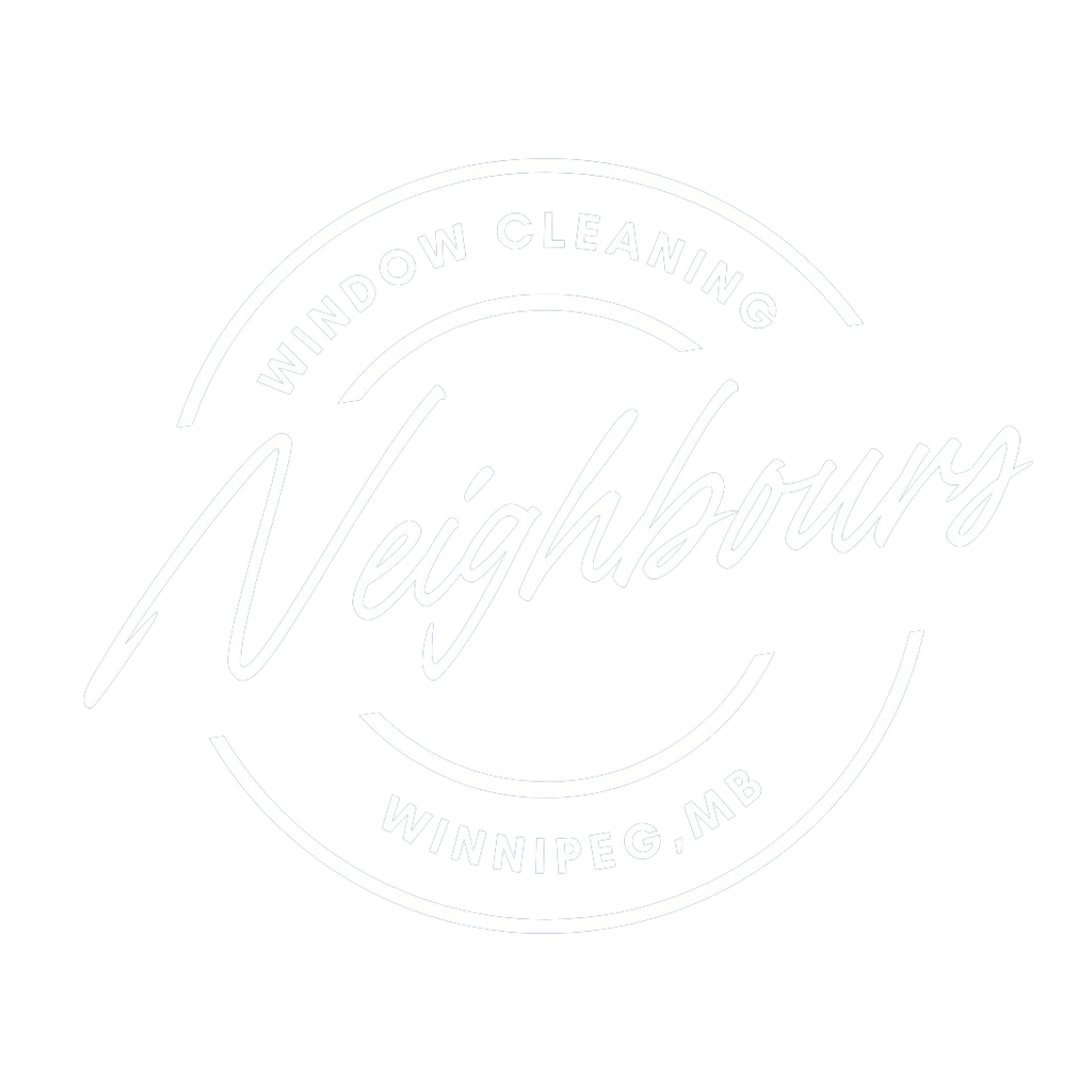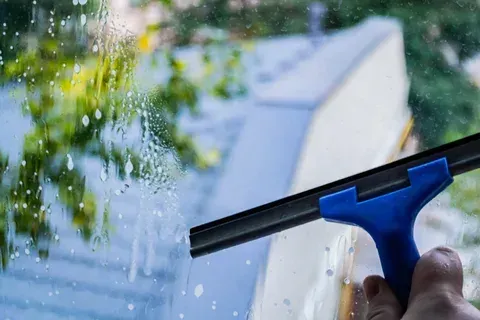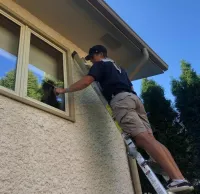
MEET THE Neighbours Pet of the week!
Hey, I'm Cleo!
I am a good helper.
I enjoy meeting my neighbours
I like walking all around Charleswood!
Featured Services In Winnipeg
Our Process
At Neighbours Window Cleaning, we believe in making our professional cleaning services simple, safe, and hassle-free. Here's what you can expect from us:
O1
Initial Consultation:
We begin with a comprehensive assessment of your cleaning needs. Our team provides detailed estimates for window cleaning, pressure washing, or screen restoration services, ensuring complete transparency in pricing and scope of work.
O2
Professional Assessment
Our experienced technicians arrive on schedule to evaluate your property's requirements. We identify optimal cleaning methods, note special considerations, and prepare a customised approach for your surfaces.
O3
Expert Execution
We implement our proven cleaning process using professional-grade equipment and eco-friendly solutions. Our team protects your property while delivering exceptional results that exceed your expectations.
Read our blog!

Cleaning Outside Windows
Clean windows not only enhance the curb appeal of your home or business but also allow more natural light inside and offer a clear, unobstructed view of the outdoors. However, cleaning outdoor windows can be a tough task, especially when they are hard to reach or located on higher floors. Prioritizing safety and using the right techniques are essential to achieve sparkling clean windows without any accidents.
At Neighbours Windows, we know how important spotless windows are to your property’s appearance and comfort. In this guide, we share practical tips and step-by-step instructions to help you safely and effectively clean your outside windows, whether you're tackling a few ground-floor panes or an entire multi-story building.
What You Should Know Before Cleaning Outside Windows
Before you grab your cleaning tools, consider the following:
Choose the Right Day: Clean windows on a calm, cloudy day to avoid direct sunlight, which can cause cleaning solutions to dry too fast and leave streaks.
Gather Your Supplies: Essential materials include a bucket, squeegee, scrubber or sponge, cleaning solution, and a hose with adjustable nozzle.
Use Proper Equipment: A sturdy ladder or an extension pole is necessary for safely reaching higher windows. Make sure your ladder is stable, and avoid standing on the top rungs. Extension poles should be fully extended and locked before use.
How to Clean Windows You Can’t Reach Safely
Hard-to-reach windows require special care. Start by assessing the height and accessibility of your windows. For windows on upper floors, always prioritize safety:
Use a stable, well-positioned ladder.
Avoid overreaching; reposition the ladder if necessary.
When using an extension pole, make sure it’s secure and easy to control.
If you’re uncomfortable or it’s unsafe, it may be best to hire a professional window cleaning service to handle those tricky spots.

How to Clean Outside Windows in 5 Simple Steps
Follow these steps for an efficient and safe cleaning process:
Spray Down the Windows with a Hose
Begin by rinsing your windows and surrounding areas with a hose fitted with an adjustable nozzle. This removes loose dirt, dust, and debris that can scratch the glass during cleaning. Using higher water pressure helps dislodge grime in corners and crevices.
Soak a Sponge or Brush in Soapy Water
Fill a bucket with hot water and add your preferred cleaning solution. Dish soap is an affordable and effective choice that’s gentle on glass. Alternatively, a natural mix of equal parts white vinegar and water works well for cutting through dirt and streaks. When using a pressure washer with soap, make sure to apply the cleaning solution evenly for the best results.
Dip your sponge or scrub brush into the soapy water and squeeze out excess to avoid drips. The sponge should be damp, not soaking wet.
Scrub the Windows Thoroughly
Starting at the top, scrub the glass in a circular motion, working your way down to prevent dirty water from dripping onto cleaned areas. For higher windows, attach your sponge or brush to an extension pole to reach safely, just like you would when performing hail damage roof repair to ensure every area is thoroughly addressed.
Focus extra attention on stubborn spots like bird droppings, fingerprints, or smudges. Rinse your sponge frequently in the soapy water to maintain cleaning effectiveness.
Rinse the Windows with Clean Water
Rinse off all soap and loosened dirt using a gentle stream from your hose. Make sure to cover the entire window surface, including corners and edges, to avoid residue buildup.
If any streaks or spots remain, spot-clean with your sponge and rinse again.
Dry the Windows for a Streak-Free Finish
The best way to dry your windows is with a squeegee. Starting from the top, pull the squeegee straight down in smooth strokes, wiping the blade clean after each pass.
If you don’t have a squeegee, crumpled newspaper also works well. Wipe the glass in circular motions to absorb water and leave a clear finish.
Additional Tips to Remember
Use a Two-Bucket System: One bucket with soapy water for scrubbing, one with clean water for rinsing your sponge or brush. This prevents dirt from redepositing on your windows.
Clean Windows from Top to Bottom: This prevents dirty water from dripping onto clean areas and helps you avoid missing spots.
Clean Regularly: Depending on your location, aim to wash outside windows two to three times per year to prevent buildup and maintain their clarity.
Frequently Asked Questions About Cleaning Outside Windows
What should you avoid when cleaning windows?
Avoid using paper towels or regular towels that leave lint or debris. Instead, use microfiber cloths or newspaper for a streak-free shine.
How often should you clean outside windows?
Typically, washing exterior windows 2-3 times annually is sufficient for most homes and businesses. Use glass cleaner for spot cleaning between washes.
How do I avoid streaks on my windows?
Use a squeegee and a two-bucket system, cleaning from top to bottom. Finish by wiping edges with a microfiber cloth.
What do professional window cleaners use?
Professionals use specialized tools such as squeegees, scrapers, brushes, extension poles, and vinegar-based cleaning solutions for a thorough clean.
Is dish soap good for cleaning outside windows?
Yes, dish soap like Dawn effectively cuts through dirt and grime without damaging glass surfaces.
Need Help With Your Outdoor Window Cleaning?
Cleaning exterior windows can be physically demanding and potentially hazardous, especially for multi-story buildings or hard-to-reach areas. If you want sparkling windows without the hassle, Neighbours Windows is here to help.
Our professional window cleaning team uses advanced equipment and eco-friendly cleaning solutions to deliver spotless, streak-free results for both residential and commercial properties. We also offer pressure washing services to keep your building’s exterior looking fresh and clean—from siding to driveways.
Contact Neighbours Windows today for a free quote and experience the difference that professional window cleaning can make!
READY TO GIVE US A TRY?
Get Started for Free Today!
Revamp your property's appearance with Winnipeg's trusted cleaning professionals. Be it anything, a need for crystal-clear windows, powerful pressure washing, or thorough screen cleaning, we're ready to deliver exceptional results that will satisfy you completely.
COMPANY
CUSTOMER CARE
CONNECT
GET A FREE QUOTE

© Copyright Neighbours Window Cleaning. All Rights Reserved.







